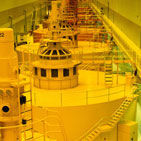
Industries’ Focus on Process Control and Efficiency Boosts European Packaging Machinery Market, Find
Product News Wednesday, May 29, 2013: Frost & Sullivan
LONDON – 29 May, 2013 – The high standard of living in Europe has popularised packaged goods, including packaged food, beverages, toiletries and cosmetics, thereby spurring demand for packaging machinery in the region. The need for packaging solutions for products of different shapes and sizes, along with manufacturer focus on automation to enhance process efficiency across industries, will sustain investments in the market.
New analysis from Frost & Sullivan’s (http://www.industrialautomation.frost.com), Analysis of the European Packaging Machinery Market, finds that the market earned revenues of more than $12.62 billion in 2012 and estimates this to reach $14.63 billion in 2016. The research covers filling, closing, and filling and closing (FCFC) machinery, form-fill-seal (FFS) machinery, wrapping machinery, group packaging machinery, and palletising machinery. End-user segments include chemicals and petrochemicals, food, beverage, pharmaceuticals, confectionery and tobacco, and toiletries and cosmetics.
Demographic changes such as an aging population and the increasing number of small households in Europe drive the need for single-portion packaging, leading end-user sectors to turn to specialised packaging lines and machinery.
“Intense competition and the economic downturn have forced industries across Europe to optimise their production processes and decrease operational costs,” said Frost & Sullivan Industrial Automation and Process Control Research Manager Sivakumar Narayanaswamy. “Automation packaging machinery that eliminates labour, generates less waste, and enhances productivity is, therefore, becoming widely accepted.”
Sale volumes have gone up further with the advent of multi-functional packaging equipment that reduce costs and provide better space management. Integrated systems also have greater operational flexibility and can adjust to new production specifications.
However, mature markets such as Germany, France and Italy are already well-equipped, and, likely to generate limited orders for these advanced packaging machines. High taxation and labour costs in these countries also dissuade foreign investors and limit green field projects, curbing new equipment uptake.
In southern Europe, the downturn has affected process and discrete industries. End users are looking to trim operating and maintenance costs, and are unwilling to invest in non-crucial automation processes.
“Machine suppliers need to concentrate on regions that have not been affected by the economic downturn,” concluded Narayanaswamy. “The markets in Scandinavia, Central and Eastern Europe, and the United Kingdomwill offer the highest scope for adoption due to their stable economy and end-user growth.”
If you are interested in more information on this research, please send an email to Julia Nikishkina, Corporate Communications, at julia.nikishkina@frost.com, with your full name, company name, job title, telephone number, company email address, company website, city, state and country.
Analysis of the European Packaging Machinery Market is part of the Industrial Automation & Process Control Growth Partnership Service program. Frost & Sullivan’s related research services include: Global Digital Manufacturing Market, and Global Industrial Valves and Actuators Market. All research services included in subscriptions provide detailed market opportunities and industry trends evaluated following extensive interviews with market participants.
